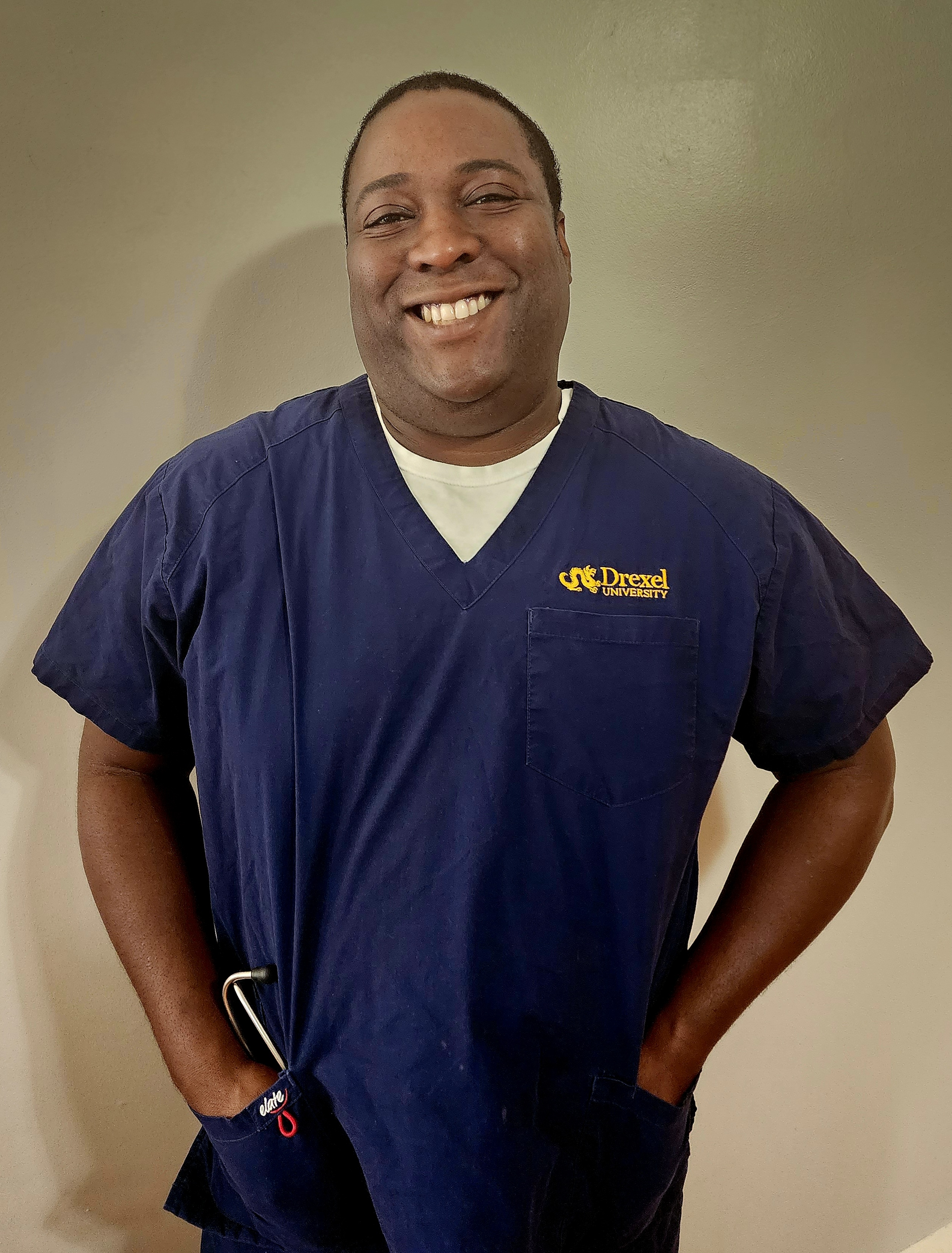Q&A with ACE Student Richard Evans
August 30, 2023
 The nursing field is woman-dominated, and the misconception that caregiving roles must be filled by women remains. But Richard Evans, a student in the Accelerated Career Entry (ACE) BSN program, is proof that helping people has no gender. After seeing how pivotal nurses were during the COVID-19 pandemic, Evans decided to leave a decade-long career as an investment accountant and pursue becoming a nurse.
The nursing field is woman-dominated, and the misconception that caregiving roles must be filled by women remains. But Richard Evans, a student in the Accelerated Career Entry (ACE) BSN program, is proof that helping people has no gender. After seeing how pivotal nurses were during the COVID-19 pandemic, Evans decided to leave a decade-long career as an investment accountant and pursue becoming a nurse.
Ahead, Evans shares more about his career journey and how he hopes to make a positive impact as a future nurse.
What inspired you to change careers and become a nurse?
I’ve always had a passion and a drive to help people, especially from a medical standpoint. But I didn’t get to do that in my first career. During the pandemic, I watched all of the nurses struggling, working hard and doing all they could to try to help and save people, and that really touched me. And I felt like I needed to help them and join in the effort.
What was your first career? What’s it like choosing a second career and going back to school for such an intense program?
This is actually my third degree, so I’m very accustomed to being in school. This program is a very intense program, which has been eye-opening. They expect a lot, and they want to make sure that you are 100 percent prepared when you enter the real world. And it’s evident in our day-to-day classes, clinicals and in our conversations with our professors.
It’s very fast-paced, and it’s a lot of knowledge. We are being best prepared to join the nursing workforce. We need to be able to take all of the information from our courses, be it from pediatrics, labor delivery or pharmacology, and apply it when we work with patients during clinicals so that we can provide the best care possible.
When patients work with me, I want them to feel zero judgment, to feel comfortable talking to me and to feel like they can get through whatever experience they’re navigating.
What specialty are you interested in?
My mother’s a pediatrician, and I always told myself I wasn’t going to go into pediatrics, but now I find myself moving towards that. I really enjoyed my rotation in pediatrics and working with kids. I think I may want to work in an intensive care unit or an emergency room.
I’ve seen when kids are suffering from illnesses, but they still have all this hope, and it brings me joy to see them still be positive.
Why did you choose Drexel?
I have always enjoyed Drexel. My brother went to medical school at Drexel, and I did my MBA here. I loved doing my MBA here, and my brother loved his time here, I even convinced my wife to complete her MBA here as well. So it was a no-brainer for me to decide to get my nursing degree here.
Does it feel odd studying to work in a woman-dominated field?
Everyone has made me feel comfortable throughout this program, I’ve never felt isolated or like I’m being put in a box by being a man in this program. I feel like I’m helping to change the stereotype that only women can be nurses. I would love to see more men become nurses.
How are faculty and your cohort supporting each other to be successful?
The faculty and the cohort definitely set you up to succeed. Everything is very practical, and we’re being set up for the real world. A lot of our professors are still working, one day they’re teaching and the next day they’re practicing [in health care], so they can bring that experience into the classroom.
From a cohort standpoint, they’re like my new family, and they’re all going through the same struggle. We bounce ideas off of each other. When I’m tired and I walk through class, I know every person is feeling the same tiredness and trying to push through. We all help keep each other sane.
Is health equity and social justice playing a role in your motivation?
I feel like there’s a lot of inequity across the board, we all know that disparities exist in health care. We try to overlook it, and I think that’s the huge issue. I feel more should be done and everyone should have the same health care across the board.
I hope that once I finish the nursing program, I can help give back and help to change that. I think that people from marginalized communities, like Black people and the LGBTQIA+ population, need better care. I want to be able to provide care for different groups of people.
Written by: Tiffany Curtis